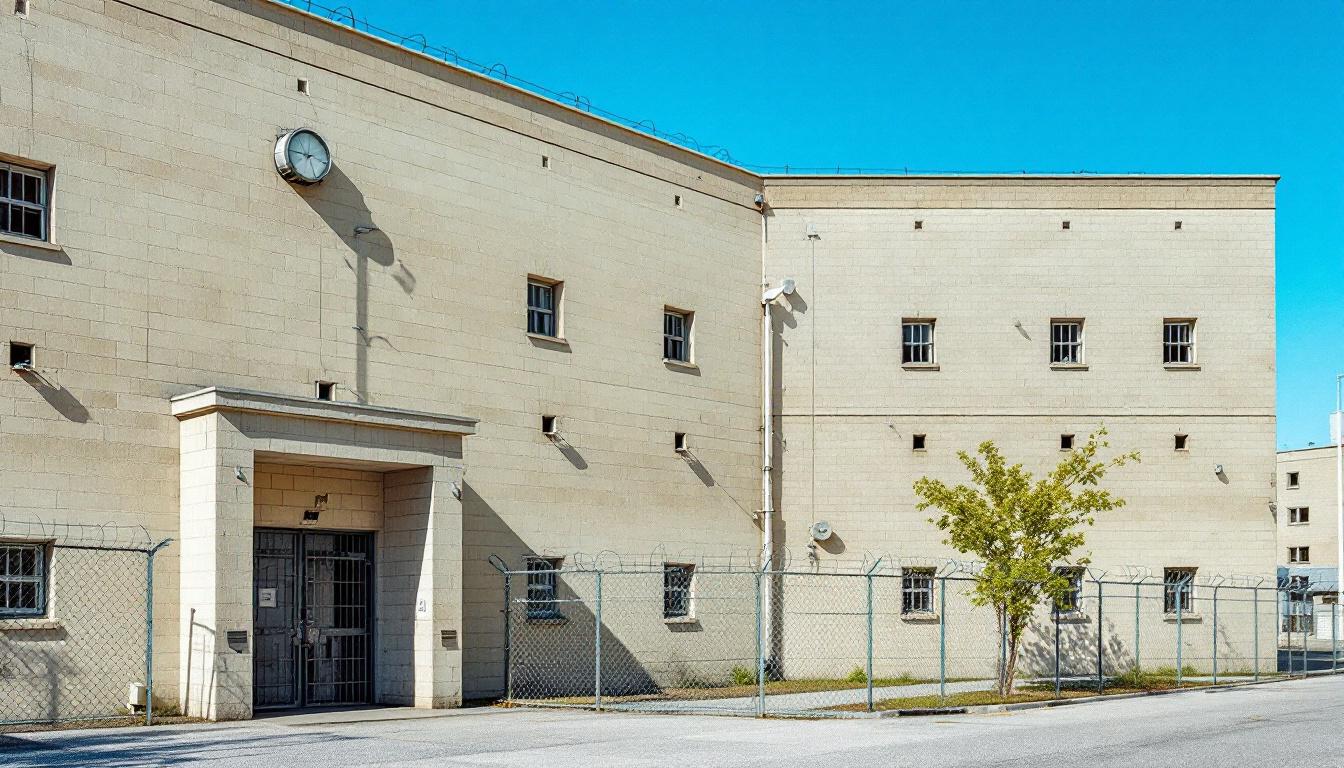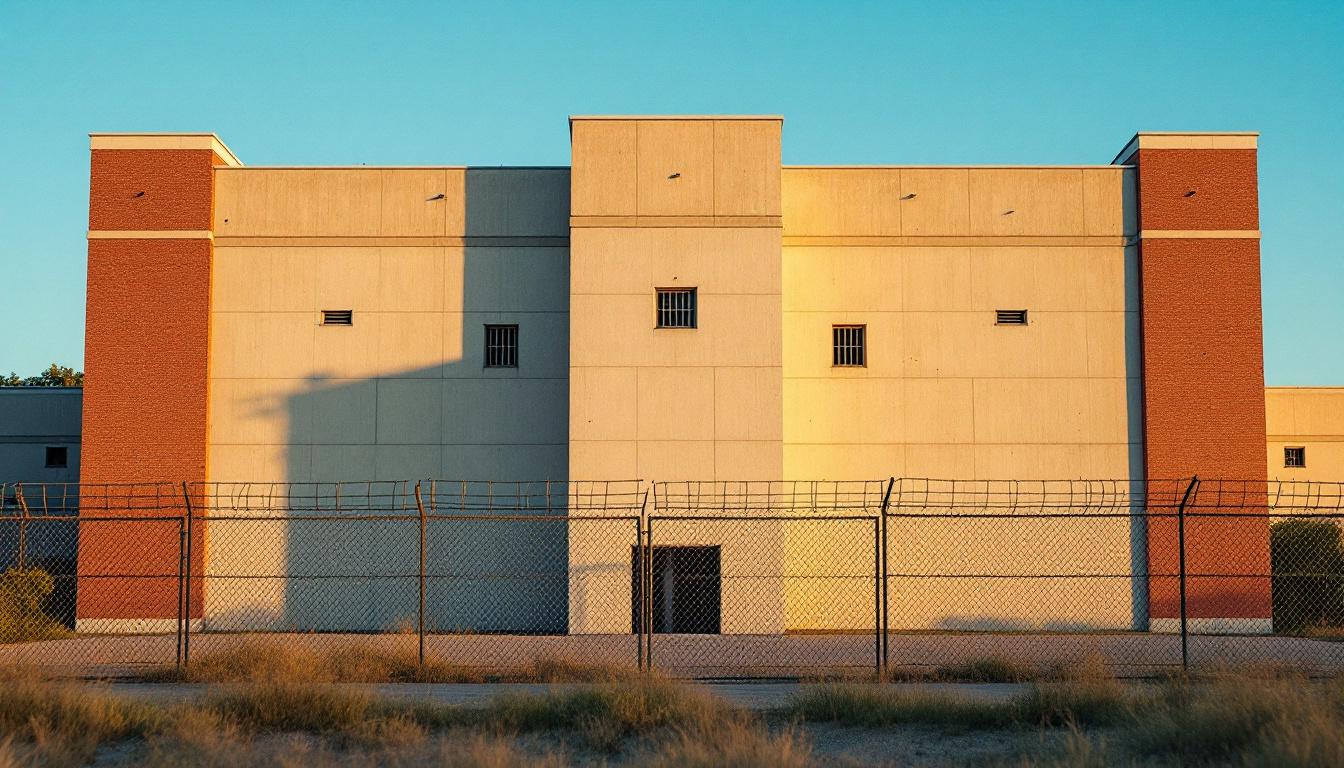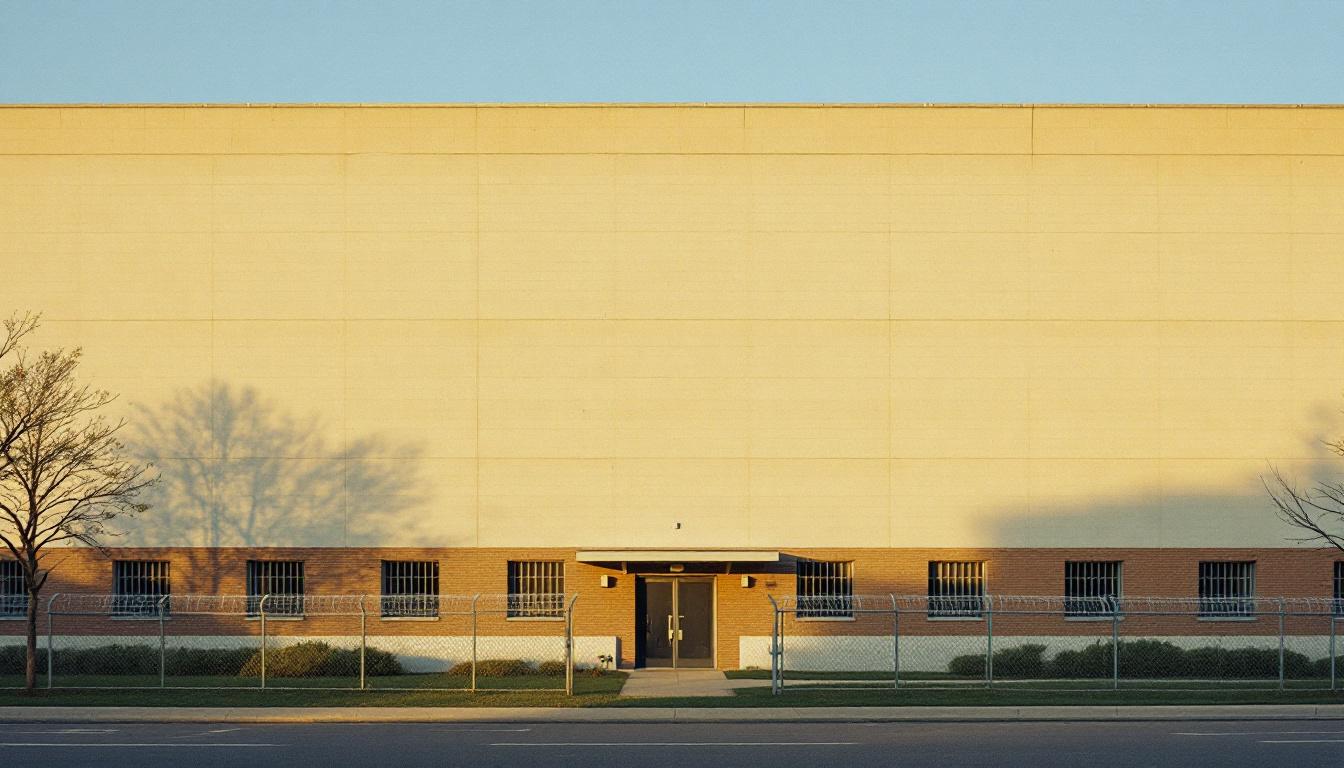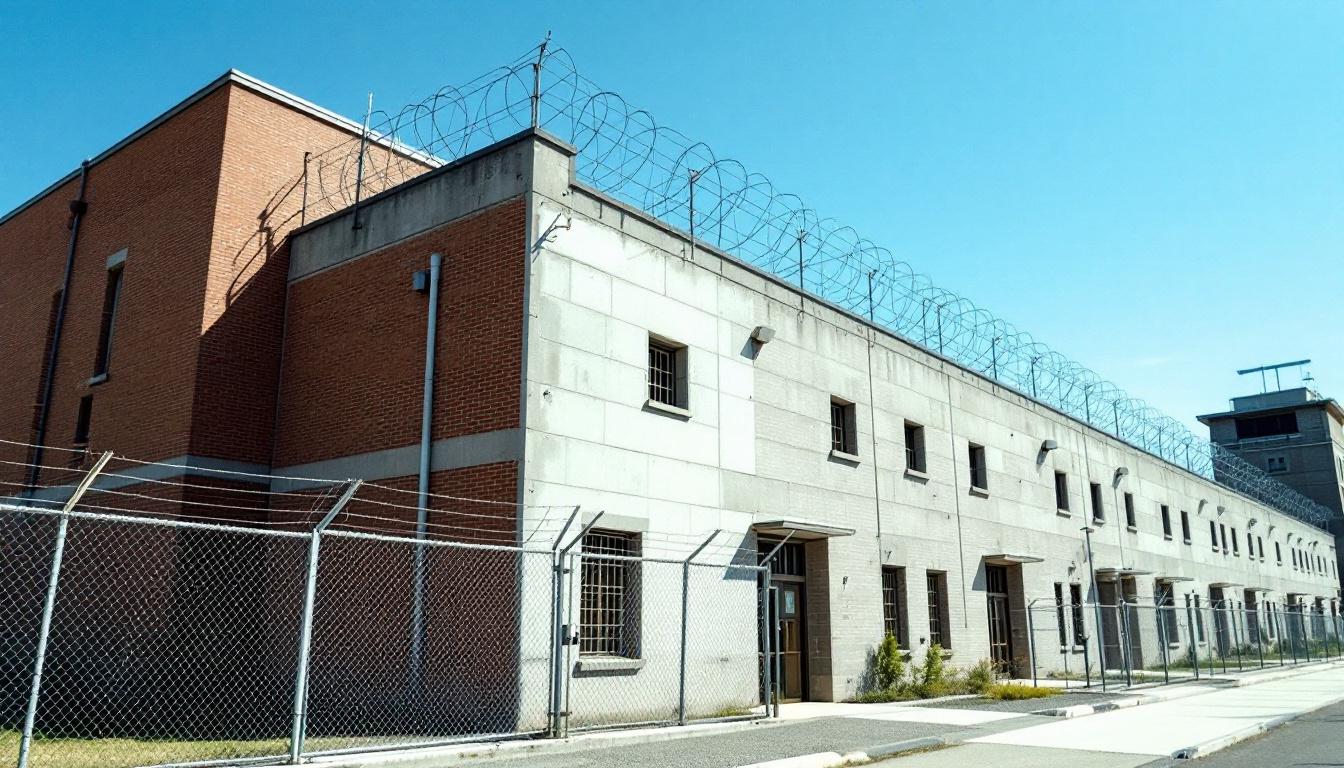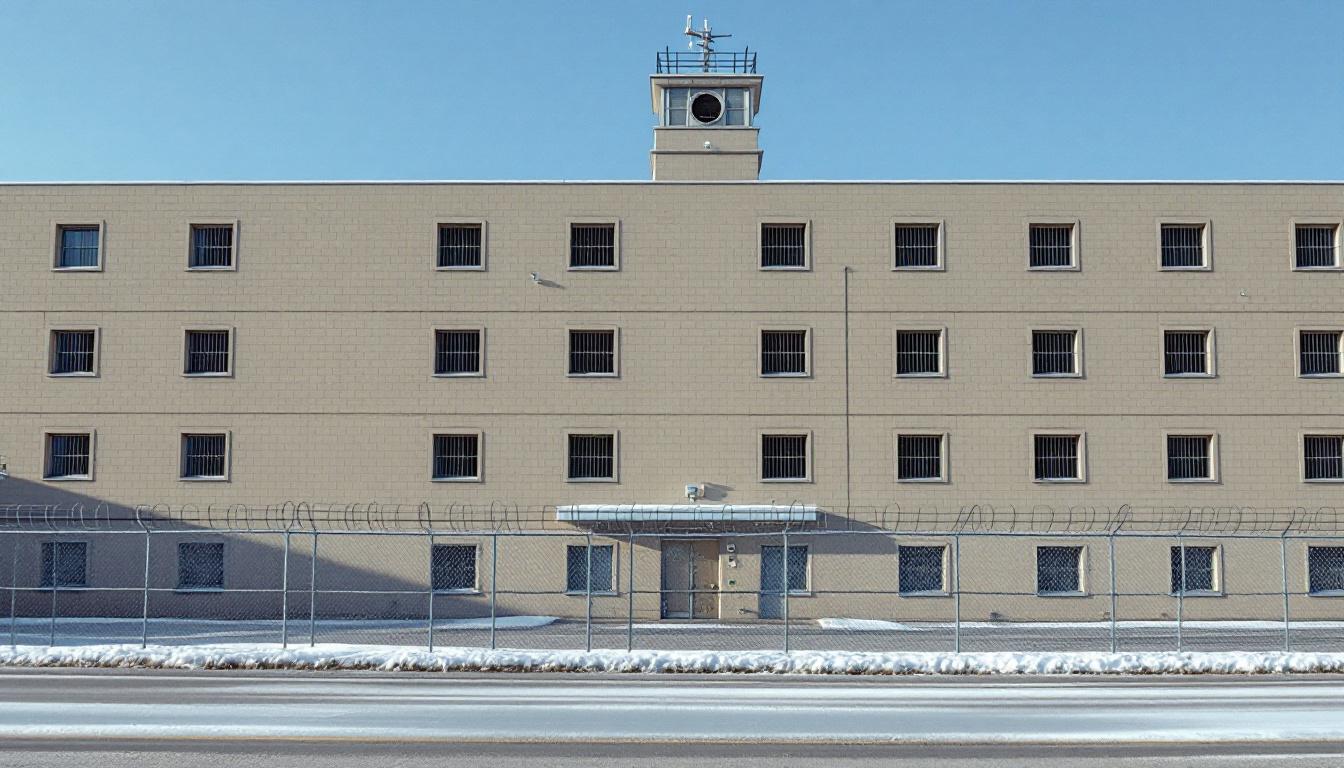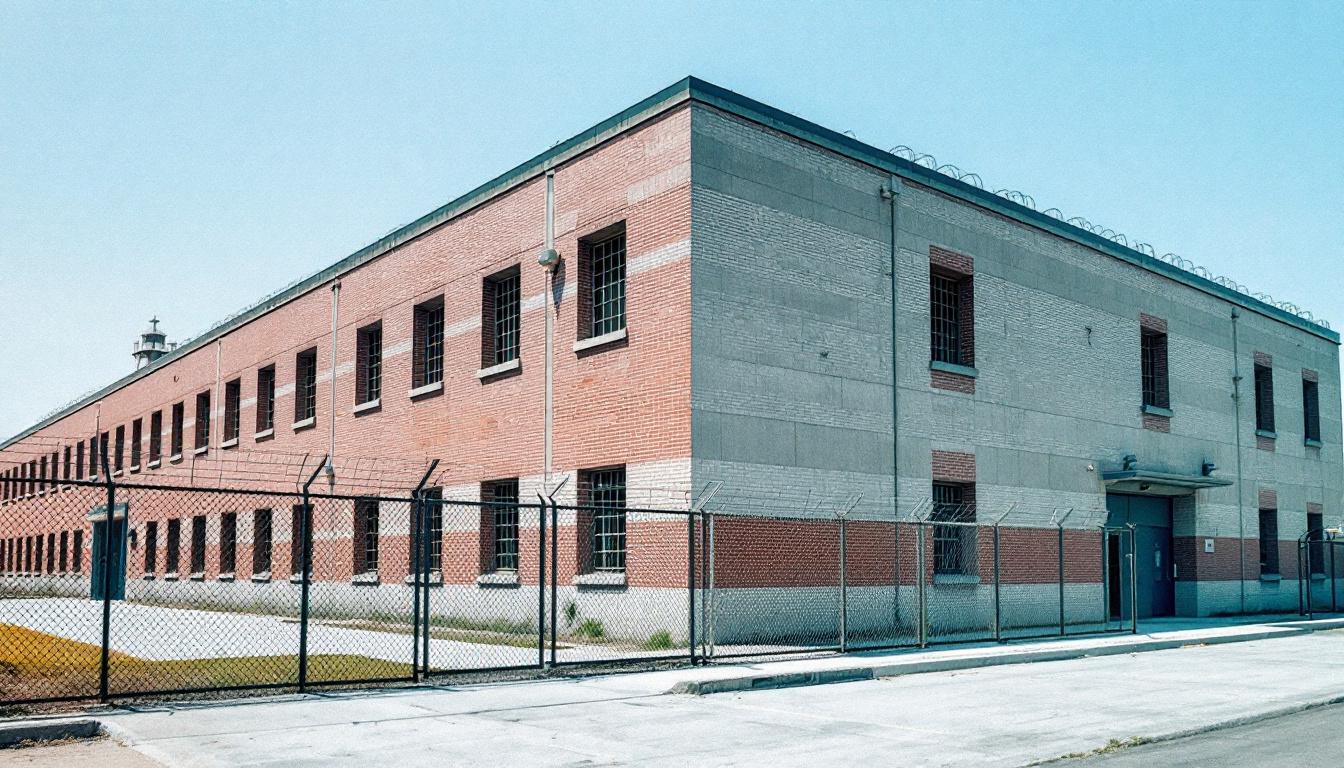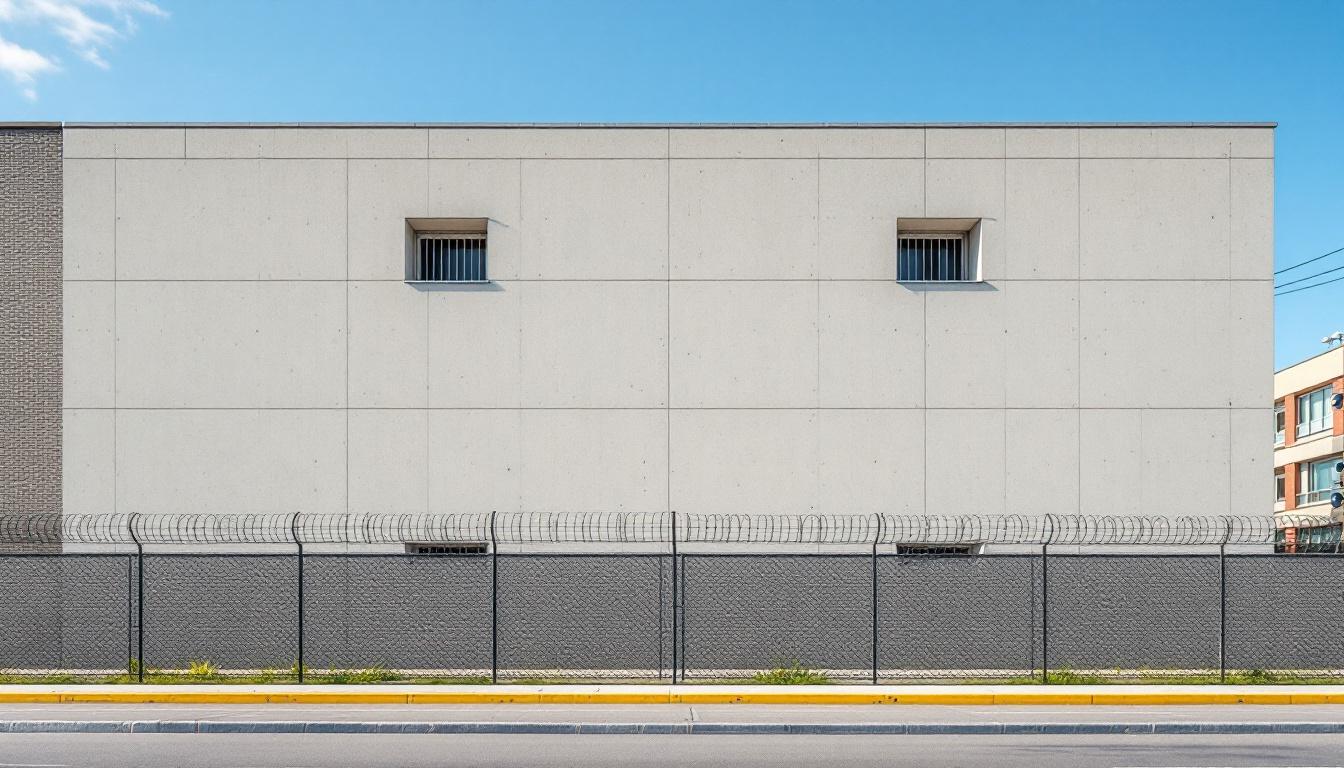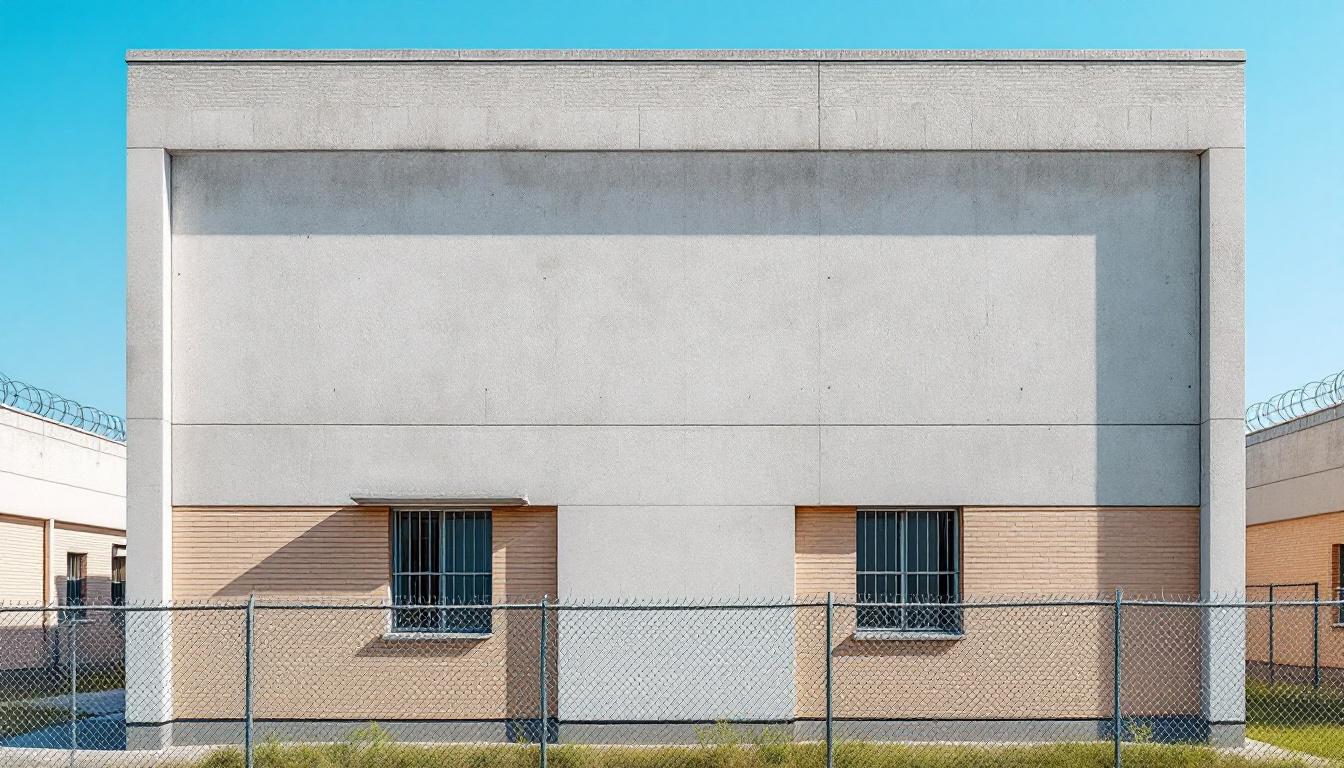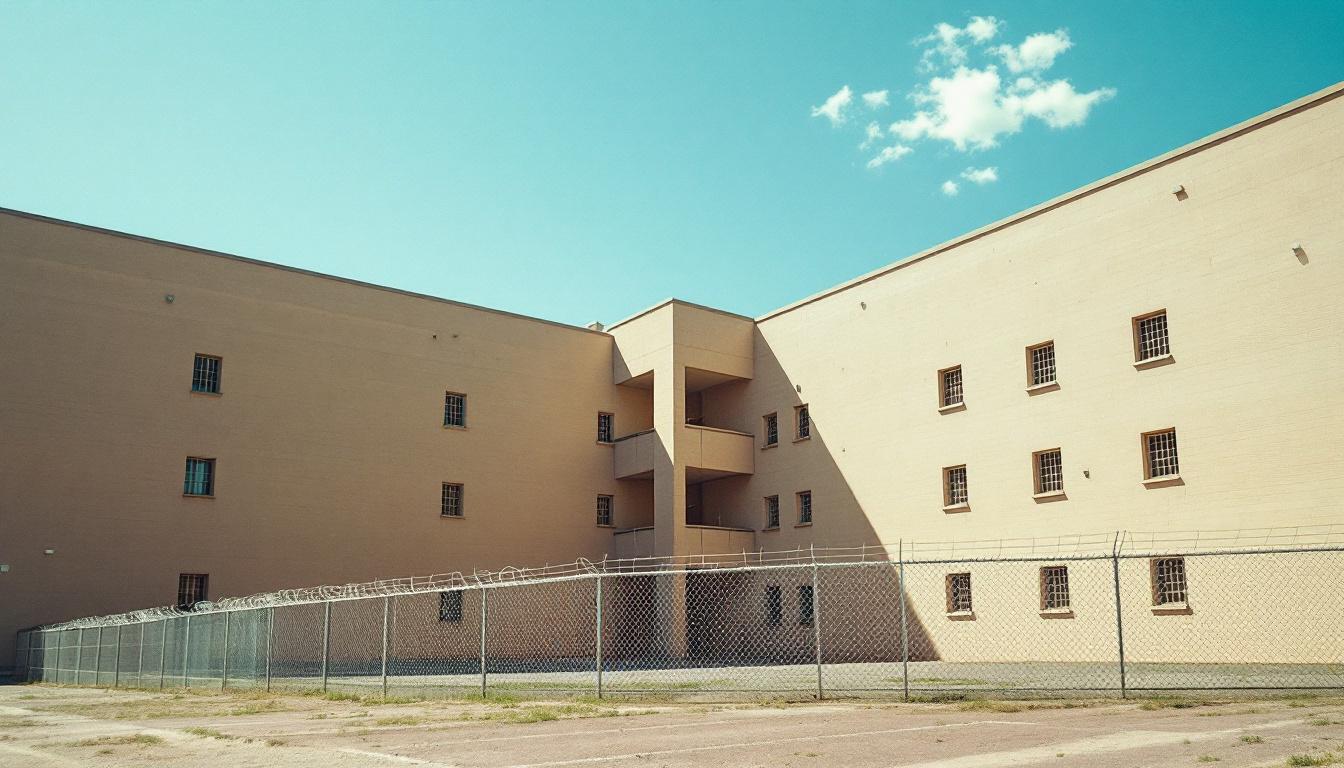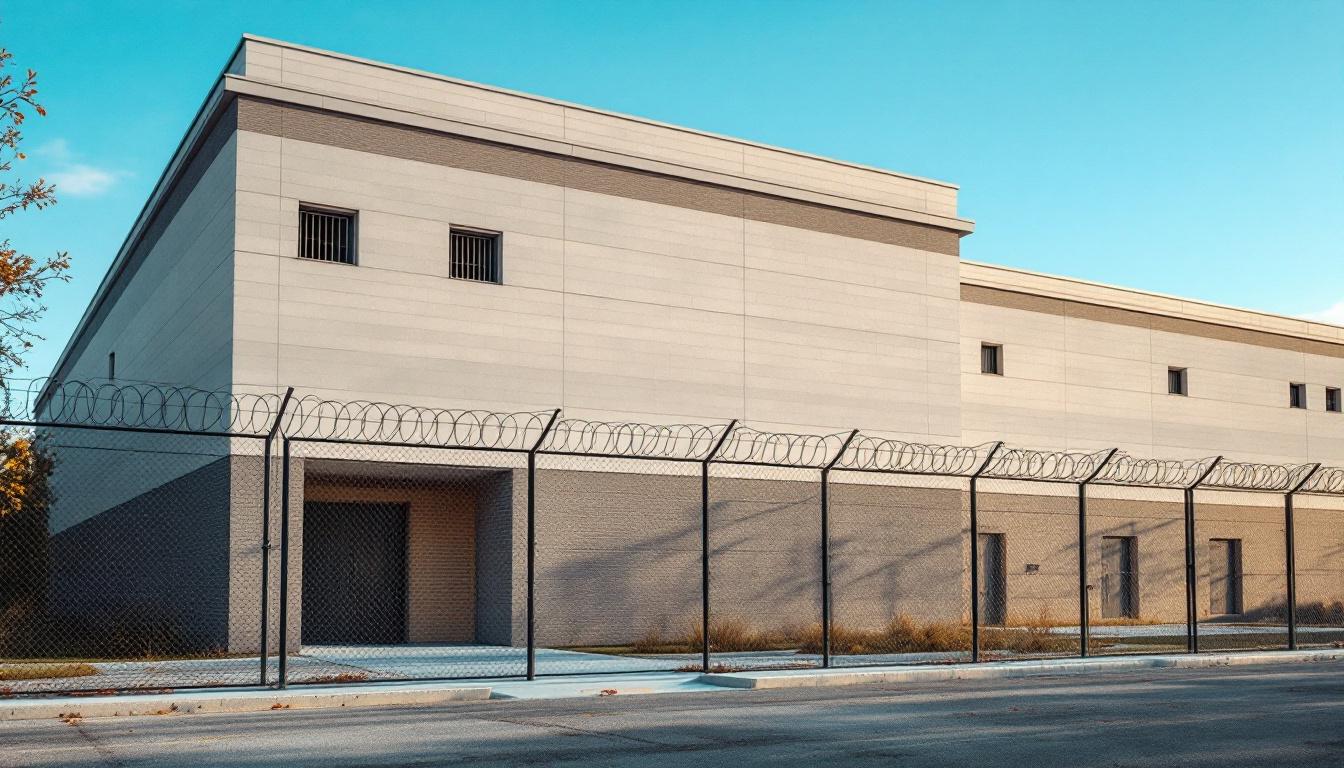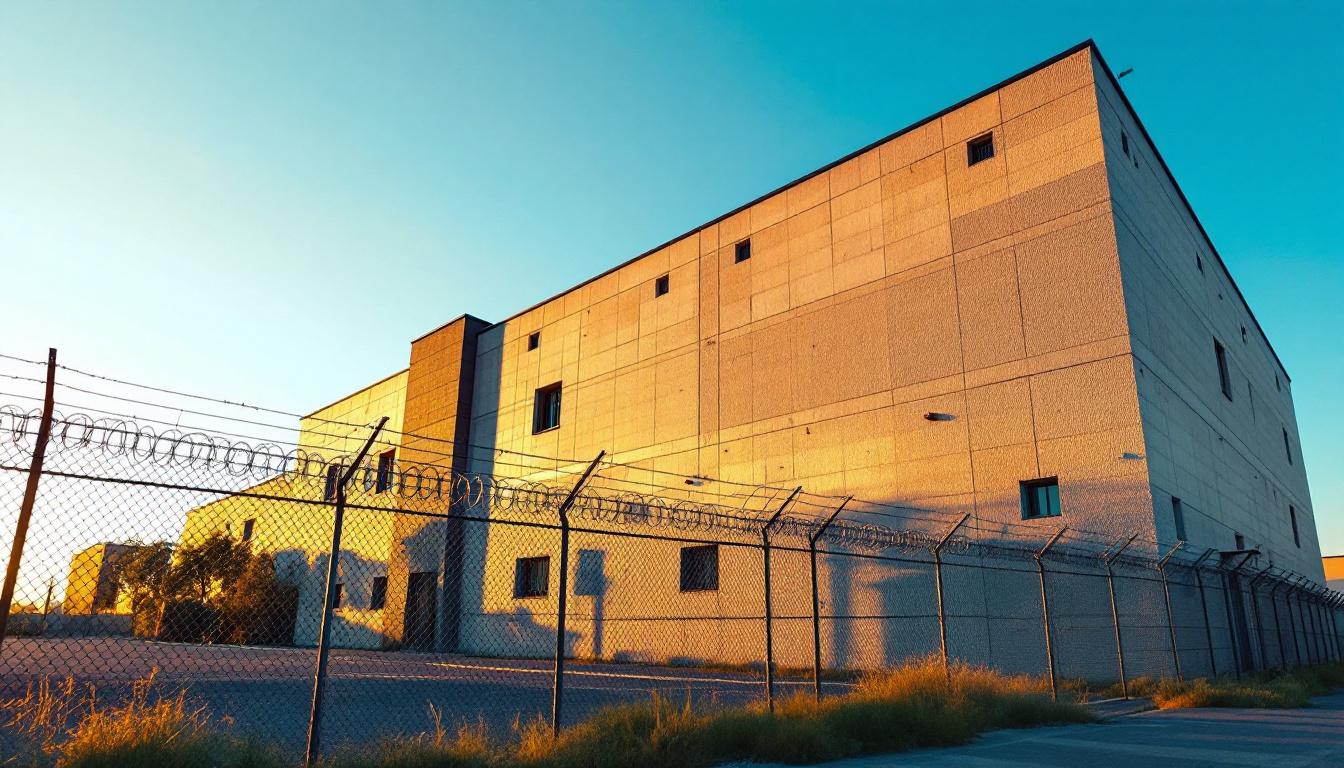
Quick Navigation
How to contact an inmate at Marion County Detention Center
This comprehensive guide will walk you through how to connect with an inmate at Marion County Detention Center. Follow the steps below to find an inmate and send letters and photos:
- Search for the inmate using our search tool below
- Create your account or log in to Penmate
- Write your message (up to 6,000 characters)
- Send instantly - inmates receive printed copies daily
Find an Inmate
Search for an inmate to start communicating today
Tip: You can search by first name, last name, or inmate ID number
To contact a person at Marion County Detention Center start by searching for the person on the official facility website. Perform a search by following these steps:
- Step 1: Enter their first name and last name into the search form and click "Search"
- Step 2: Locate their inmate record
- Step 3: Write down their Inmate ID and any housing information provided
Important! Be sure to enter the person's full name. Nicknames should not be used.
How to Send Messages to Inmates

You can use your phone or computer to send emails, letters, and photos to an inmate. Messages are sent electronically to inmate tablets or kiosks at the facility. If you would like to send a message, start by searching for an inmate at Marion County Detention Center.
Sending Photos and Postcards

A great way to send love and support to a loved one at Marion County Detention Center is to send photos and postcards. It only takes a few minutes to send photos from your phone and it makes a huge difference. You can also mail postcards with words of support and inspiration, or design your own postcard for special moments like birthdays and holidays.
Important! Be sure not to send any explicit photos or they may not be approved by the facility. You can also use a photo printing app like Penmate to make sure your photos are printed at the correct size (4x6 or 3x5) and are mailed according to the rules and regulations of Marion County Detention Center.
Frequently asked questions about Marion County Detention Center
-
How long does it take to deliver a message?
If you're sending an email message your letter is usually delivered within 24-48 hours. For messages sent via mail you should expect delivery within 3-7 days. All messages will need be approved by Marion County Detention Center.
-
How much does it cost to send a message to Marion County Detention Center?
You can send a message free using your phone or mail a message via USPS for the price of a $0.60 stamp and envelope. You can also purchase credits or e-stamps from services starting at $1.99.
-
What services can I use to contact an inmate at Marion County Detention Center?
Penmate
You can use Penmate to send letters and photos to an inmate from your phone. It's an easy way to stay in touch during your loved one's incarceration. Use the inmate locator to find an inmate's location and contact information, then you can send messages within a few minutes.
Securus messaging
Securus may be another option for communicating with an inmate at Marion County Detention Center. You can create a friends and family account and purchase credits to send messages. All messages will be reviewed and must be approved by the facility.
JPay
Some county jails and state prisons may support sending messages with JPay. You must register an account with the system, find your loved one, and purchase stamps to send messages. For some locations you can also attach photos.
Smart Jail Mail
You may also check if Smart Jail Mail is available at Marion County Detention Center. Smart Jail Mail is operated by Smart Communications and has contracted with some state and county jails. After purchasing credits, your messages and photos are sent to the facility, printed out, and then handed out to your loved one.
-
What is the mailing address of Marion County Detention Center?
Mailing address:
Marion County Detention Center
201 Warehouse Rd
Lebanon, KY 40033
Phone: (270) 692-5802Business hours:
- Monday: 9:00 AM – 8:00 PM
- Tuesday: 9:00 AM – 8:00 PM
- Wednesday: 9:00 AM – 8:00 PM
- Thursday: 9:00 AM – 8:00 PM
- Friday: 9:00 AM – 8:00 PM
- Saturday: Closed
- Sunday: Closed
-
What are the visiting hours at Marion County Detention Center?
Visiting hours at Marion County Detention Center vary by housing unit and security level. Generally, visits are scheduled on weekends and holidays, with some facilities offering weekday visits. Contact the facility directly at (270) 692-5802 or check their website for the current visiting schedule. Visits typically last 30-60 minutes and must be scheduled in advance.
-
What items are prohibited when sending mail to Marion County Detention Center?
Prohibited items typically include: cash, personal checks, stamps, stickers, glitter, glue, tape, staples, paperclips, polaroid photos, musical or blank greeting cards, hardcover books, magazines with staples, and any items containing metal or electronics. Only send letters on plain white paper with blue or black ink. Photos must be printed on regular photo paper (no Polaroids). Always check with Marion County Detention Center for their specific mail policies.
-
How do I send money to an inmate at Marion County Detention Center?
You can send money to an inmate at Marion County Detention Center through several methods: 1) Online using JPay, Access Corrections, or the facility's approved vendor, 2) Money orders mailed directly to the facility with the inmate's name and ID number, 3) Kiosks located in the facility lobby, or 4) Over the phone using a credit or debit card. Fees vary by method, typically ranging from $2.95 to $11.95 per transaction.
-
Can I schedule a video visit with an inmate at Marion County Detention Center?
Many facilities now offer video visitation as an alternative to in-person visits. At Marion County Detention Center, video visits may be available through services like Penmate, Securus Video Connect, GTL, or ICSolutions. Video visits typically cost $10-20 for 20-30 minutes and must be scheduled in advance. You'll need a computer or smartphone with a camera and reliable internet connection. Contact the facility for their specific video visitation policies and approved vendors.
-
What identification do I need to visit an inmate at Marion County Detention Center?
All visitors must present valid government-issued photo identification such as a driver's license, state ID, passport, or military ID. Minors must be accompanied by a parent or legal guardian who can provide the minor's birth certificate. Some facilities require visitors to be on the inmate's approved visitation list, which may require a background check. Contact Marion County Detention Center for specific ID requirements and visitor approval procedures.
-
How can I find out an inmate's release date?
To find an inmate's release date at Marion County Detention Center, you can: 1) Use the online inmate search tool if available, 2) Call the facility's records department, 3) Contact the inmate's case manager or counselor, or 4) Have the inmate provide this information during a call or visit. For privacy reasons, some facilities only release this information to immediate family members.
Facility Overview
Contact Information
Marion County Detention Center201 Warehouse Rd
Lebanon, KY 40033
Phone: (270) 692-5802
Official Website

About Marion County Detention Center
Serving the community's safety needs while supporting pathways toward rehabilitation, the Marion County Detention Center, KY operates as a vital component of the regional correctional system. Located in Phoenix, Kentucky, this KY correctional facility processes individuals through various stages of the justice system, from initial booking through court proceedings and potential sentencing phases.
The facility's operational framework typically emphasizes structured daily routines designed to maintain security while providing those incarcerated services that support both immediate needs and longer-term reintegration goals. Phoenix's geographic position within Marion County allows the detention center to serve multiple jurisdictions effectively, coordinating with local law enforcement agencies and court systems throughout the region. Standard detention operations generally include medical screening, classification processes, and basic educational or vocational programming, though specific offerings may vary based on length of stay and individual circumstances.
Within Kentucky's broader correctional landscape, Marion County Detention Center functions as part of the interconnected system that balances public safety requirements with rehabilitation-focused approaches. The facility typically maintains connections with community organizations and social services agencies to facilitate transition planning and family communication, recognizing that successful reentry often depends on maintaining constructive relationships during incarceration. Through these systematic approaches to detention management, the center contributes to both immediate community safety and the longer-term goal of reducing recidivism rates across the region.
Programs & Services
Personal growth and skill development remain central priorities for those incarcerated at Marion County Detention Center, where structured opportunities support both immediate needs and long-term success. The facility typically emphasizes creating pathways that allow individuals to address underlying challenges while building practical capabilities for reintegration. Through a framework focused on security and structured programming, participants may access various developmental resources designed to foster positive change during their time in custody.
Educational advancement forms a cornerstone of the center's offerings, with education services that may furnish basic literacy instruction and GED preparation for those seeking to complete their high school equivalency. ESL programs often provide crucial language development support for non-native English speakers, helping participants improve communication skills essential for future employment and community engagement. Also available are vocational programs that typically focus on practical skill development in areas such as maintenance, food service, or basic construction techniques, giving those incarcerated hands-on experience in trades that may support their transition back to the community.
Therapeutic support services address the complex challenges many participants face, with substance abuse treatment programs that often include both group sessions and educational components about addiction and recovery. Individual counseling may furnish personalized support for those dealing with mental health concerns, trauma, or behavioral issues that contributed to their incarceration. These therapeutic offerings typically operate within the facility's structured environment, ensuring that participants receive consistent support while maintaining the safety and security protocols essential to the detention center's operations.
Daily Life & Visitation
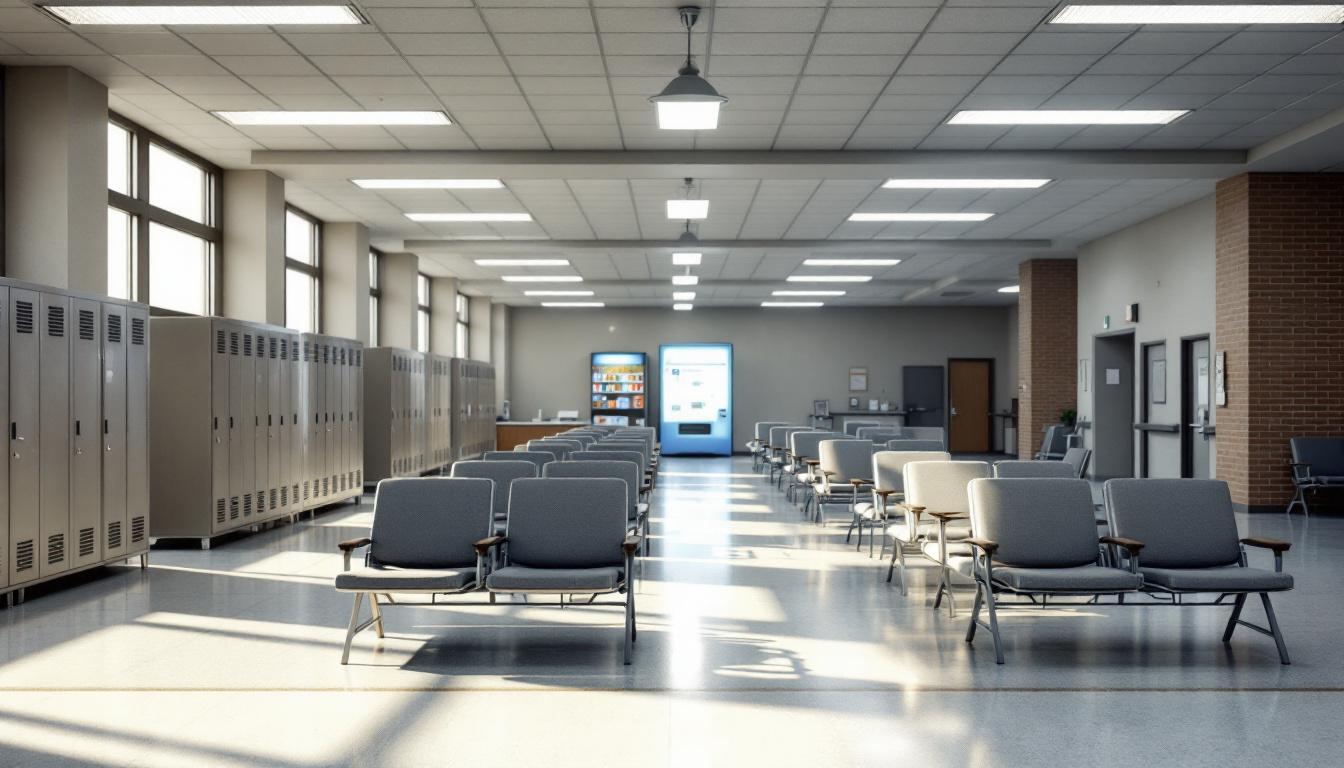
Family connections and community bonds remain vital lifelines for those incarcerated at Marion County Detention Center. The facility currently operates on a structured daily schedule that continues to emphasize maintaining relationships with loved ones while providing essential programming. Those incarcerated typically begin their day with morning count procedures, followed by meal service and various scheduled activities that may include educational programming, work assignments, or recreational periods.
Housing arrangements generally consist of dormitory-style units or individual cells, depending on classification levels and available space. Those incarcerated typically share common areas where social interactions naturally develop among residents. Meals are usually served in designated dining areas at scheduled times throughout the day, furnishing opportunities for community interaction. Also, the facility may offer recreational activities such as television viewing, reading materials, and limited exercise opportunities in designated areas.
However, maintaining connections with family and friends often represents the most meaningful aspect of daily life. The facility typically provides visitation opportunities on scheduled days, allowing face-to-face contact with approved visitors. Those incarcerated may also access telephone services to communicate with their support networks, though calls are generally monitored and may have time restrictions. Work assignments within the facility often include kitchen duties, cleaning responsibilities, or maintenance tasks that help maintain daily operations while providing structure. Additionally, some residents may participate in educational or counseling programs designed to support their eventual reintegration into the community.
Ready to Connect?
Start communicating with your loved one today
Search for an Inmate
